The Project
About the study
This project investigates sexual and gender-based violence in higher education, a widespread and pressing global issue. We aim to develop a survivor-centred approach to better understand and respond to sexual and gender-based violence by integrating insights from survivors, activists, academics, and policymakers in South Africa, Nigeria, Brazil and Argentina. Our focus is on prevention, holistic responses and fostering cultural change in higher education institutions.
The project is called FemIDEAS, an acronym for the frameworks and principles guiding the study: Feminism, Intersectionality, Decolonisation, Equality, Abolition, and Survivor-centred.
We have identified five key gaps in our understanding of sexual and gender-based violence in higher education settings:
- Insufficient data on the prevalence and nature of violence, as well as the effectiveness of support mechanisms.
- A lack of focus on empirical research from the Global South.
- Inadequate understanding of how structural violences intersects with the formation, maintenance, and transformation of higher education institutions.
- Insufficient knowledge exchange among institutions, academics, and policymakers.
- Limited sharing of knowledge between higher education institutions across different countries, particularly between the Global South and the Global North.
Study aims & objectives
- Centre voices of people with lived experiences of sexual and gender-based violence and survivor-centred methodologies throughout the project.
- Contribute to theoretical scholarship on sexual and gender-based violence in higher education by analysing institutional structures and integrating perspectives from feminist institutionalism, gender studies, and public health.
- Decolonise sexual and gender-based violence theories by incorporating knowledge from the Global South and applying it to the Global North, and create a repository of sexual and gender-based violence theories, policies, and practices from the Global South.
- Shift the focus from criminalisation to prevention and explore ways to transform dominant gender norms in higher education for cultural and institutional change.
- Establish a global network of scholars, activists, policymakers, and individuals with lived experience, committed to an international, intersectional, and interdisciplinary approach to eliminating sexual and gender-based violence in HE.
Project stages

Ethics & literature review

International advisory group set up

Lived experience advisory group set up

Website development

South Africa fieldwork followed by preliminary analysis and reporting

Nigeria fieldwork followed by preliminary analysis and reporting

Brazil fieldwork followed by preliminary analysis and reporting

Argentina fieldwork followed by preliminary analysis and reporting

Full analysis

Knowledge exchange, impact activities and resource development
Methods
We will employ a range of methods to gather data, centring the voices of individuals with lived experience of sexual and gender-based violence. We will begin by conducting interviews with people at each of our fieldwork sites.
We will speak to:
- People with lived experience of sexual and gender-based violence in higher education (victim-survivors)
- Students at universities and other higher education institutions
- Academic and non-academic employees at universities
- Student and employee activists at universities
Advisory groups
We are proud to have the support and guidance of our transnational Research Advisory Group (RAG) and Lived Experience Advisory Group (LEAG). The Research Advisory Group includes experts from research, policy, and practice from countries across the world. We will be featuring discussion and news pieces from the group throughout this project.
Our Lived Experience Advisory Group (LEAG) consists of women with personal experience sexual and gender-based violence. This group offers valuable, ongoing consultation, helping us to better understand local issues, and supports the development of our methods so that they are inclusive, accessible and survivor-centred.
Project partners
We will have a partner organisation at each fieldwork site. They will:
- Help us with recruitment by sharing information about the study via their local networks.
- Offer local insights on sexual and gender-based violence issues and available support services for people experiencing sexual and gender-based violence.
- Help us to access appropriate spaces in which to conduct interviews safely.
About the project team
This project team is made up of Dr Adrija Dey, Dr Jessica Wild and Dr Erin Shannon. Adrija is the Principal Investigator, and Senior Research Fellow at the University of Westminster. Jess is the Co-Investigator, and Research Fellow at the University of Westminster. Together, Adrija and Jess have at least a decade of experience conducting survivor-focused research on the topic of sexual and gender-based violence and experience working in practice. Erin has over a decade of experience in researching gender-based and sexual violence in higher education throughout their undergraduate, Masters, and doctoral degrees, and subsequent research posts and postdoctoral fellowship.
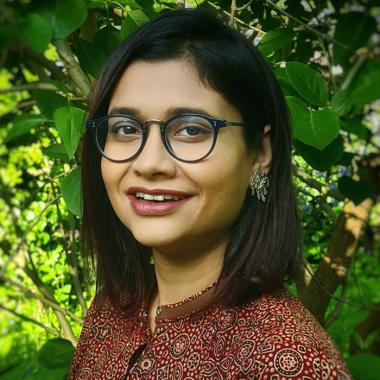
Adrija Dey
she/her
University of Westminster, UK
Dr Adrija Dey is a UKRI Future Leader Senior Research Fellow at the School of Social Science and School of Media and Communication at the University of Westminster. Her research project is titled "Decolonising Sexual and Gender Based Violence in Higher Education: Innovations in Theory, Policy and Practice". She was previously a Lecturer in Digital Media at the University of Sussex and British Academy post-doctoral research fellow at the Department of Development Studies, SOAS, where her project was titled “Sexual and Gender Based Violence (SGBV) in Indian Universities: A Study of Campus Life, Student Activism, and Institutional Responses.” Adrija’s research is interdisciplinary in nature, and draws from a wide range of methodologies within gender studies, politics, media, and development studies. Particularly, her work focuses on sexual and gender based violence, feminist social movements, student activism, digital activism, new media, misinformation and surveillance. She conducts her research with a focus on the Global South and through a decolonial and intersectional Marxist feminist lens. Adrija is the author of Nirbhaya: New Media and Digital Gender Activism. She has been a vocal campaigner against sexual misconduct in Higher Education and currently is the Director of International Knowledge Exchange at the 1752 group.

Jess Wild
she/her
University of Westminster, UK
Jessica joined Westminster as a co-investigator on Dr Adrija Dey's project entitled, Decolonising Sexual and Gender Based Violence in Higher Education: Innovations in Theory, Policy and Practice. Prior to this role Jessica held an ESRC postdoctoral fellowship at Newcastle University. She completed her PhD at the Centre for Interdisciplinary research at the University of Leeds, where she conducted a survivor-led study on gender politics as they intersect with domestic abuse prevention and intervention. Jessica is a feminist, activist researcher whose interdisciplinary work is based in the sociology of gender. It seeks to radically reconceptualise the dominant practice and policy paradigms governing the prevention of, and responses to gender-based violence (GBV) using a feminist, intersectional, trans-inclusive lens. Her research contributes to current debates regarding GBV as it seeks to trouble normative understandings and responses to GBV which typically place disproportionate responsibility on victim-survivors (usually women and minoritised genders). Her work has examined the incorporation of men in efforts to prevent and intervene in men's violence, including in the context of families who come to the attention of children's social care. Jessica's work has also explored the deleterious impact of welfare reform for survivors of DVA and the problematics of ‘resilience’ as a distinct subject-making discourse within contexts of neoliberal austerity. In this context, Jessica has examined geographies of trauma and notions of small scale activism including within the context of the home. Prior to returning to academia in 2015, Jessica worked in London managing 'frontline' large community, accommodation based and refuge services for adults and young people experiencing homelessness and rough-sleeping, domestic abuse, substance use, and mental health challenges. Jessica has also worked for a non-profit organisation developing evidence-informed resources for adults' and children's social services, and led on a pioneering national domestic abuse and child protection Change Project.

Erin Shannon
she/they
University of Westminster, UK
Dr Erin Shannon is a Research Associate on Dr Adrija Dey's project, Decolonising Sexual and Gender Based Violence in Higher Education: Innovations in Theory, Policy and Practice. Before joining Westminster, Erin previously worked as an Associate Lecturer in Education at University of York, and held a competitive ESRC Postdoctoral Research Fellowship in Sociology at Newcastle University. Erin completed her PhD in Education at University of York in 2021; her doctoral research compared how a selection of universities in England and in the United States responded to student disclosures of sexual violence at the level of national policy, staff experience of and involvement in institutional implementation, and student survivor experience. Erin has over a decade of experience in researching gender-based and sexual violence in higher education throughout their undergraduate, Masters, and doctoral degrees, and subsequent research posts and postdoctoral fellowship. Her approach is distinctive in her field, blending sociology, organisational studies and gender studies, and searching for transformative understandings of and solutions to violence. They convene the scholarly collective, Abolition Feminism in University Contexts.
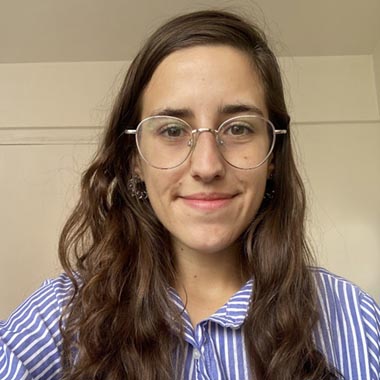
Guadalupe López
she/her
University of Buenos Aires, Argentina
Guadalupe López is a PhD candidate in Social Sciences, holds a Bachelor's degree in Social Work, and is currently studying for a teaching degree in Social Work at the University of Buenos Aires (UBA). She completed the postgraduate course "Public Policy Analysis, Evaluation, and Decision-Making" at the Latin American Faculty of Social Sciences (FLACSO) and was a fellow of the National Interuniversity Council (CIN) during 2020 and 2021. Currently, she is a UBACyT research fellow based at the Gino Germani Research Institute (IIGG-UBA) and teaches in the Social Work program at the Faculty of Social Sciences (FSoc-UBA). Her research focuses on the analysis of social policies and crime control policies targeting young people from marginalized communities in Argentina, exploring the intersection between welfare, labor, and security. She investigates how these policies shape representations of youth and how they interact with the state and other actors. In this context, she has participated in various academic conferences and spaces. Additionally, she has experience in public administration and in developing social impact strategies alongside third-sector organizations.
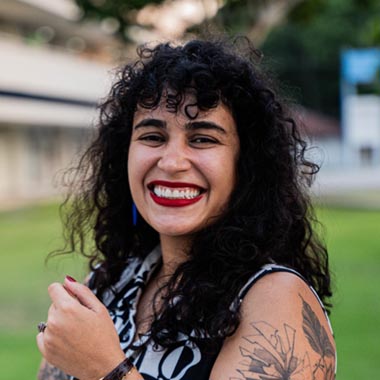
Caroline Rodrigues Silva
Brunel Business School, UK
Caroline Rodrigues Silva is a Lecturer at Brunel Business School and a researcher specialising in gender-based violence prevention, decolonial studies, and intersectionality, with a strong background in international academic collaboration and applied research.
Research Advisory Group
Our esteemed international Research Advisory Group (RAG) is made up of expert academics, practitioners and policymakers who will support the progress and development of this study. The group members are as follows:
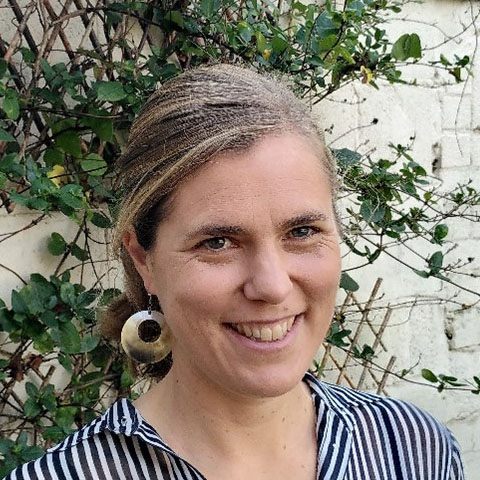
Anna Bull
University of York, UK & 1752 Group
Dr Anna Bull is a Lecturer in Education and Social Justice at the University of York, and a founder and director of The 1752 Group, a research and campaign organisation addressing staff sexual misconduct in higher education. She is currently Principal Investigator on the ESRC-funded research project 'Examining Institutional Responses to Sexual Misconduct: Higher Education After #MeToo'. Her research interests include class and gender inequalities in classical music education; and sexual misconduct in higher education. Anna is a regular commentator in the media on sexual misconduct in higher education and has authored various academic and public-facing reports and articles in this area. Most recently she has co-authored The 1752 Group and McAllister Olivarius' Sector Guidance to address staff sexual misconduct in UK higher education.
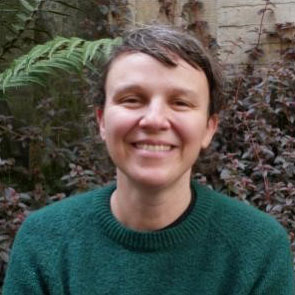
Diana Ojeda
Universidad de los Andes, Colombia
Diana Ojeda is Associate Professor in sustainability, environment and development at the Interdisciplinary Center for Development Studies (Cider), Universidad de los Andes. Her research bridges political ecology, feminist geopolitics and studies of science in the study of socioenvironmental conflicts, particularly in relation to environmental conservation, climate change mitigation and nature tourism. She serves currently as Chair of the Disciplinary Committee Against Harm, Harassment, Threat, Discrimination and Gender Based Violence (MAAD) at Uniandes. Diana Ojeda holds a BA in Economics and a BA in History (Universidad de los Andes, Bogotá, Colombia), and is MA and PhD in Geography (Clark University, Worcester, MA, USA).
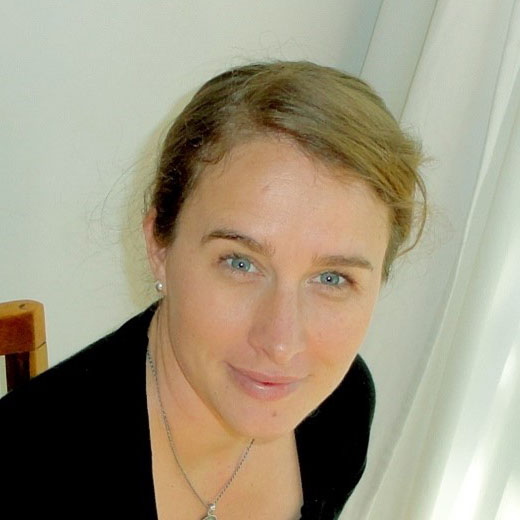
Elizabet le Roux
Stellenbosch University, South Africa
Dr Elisabet le Roux is Research Director of the Unit for Religion and Development Research at Stellenbosch University, South Africa. To date, she has delivered a range of evaluation and formative research projects in 24 countries across four continents, with a particular focus on violence against women and girls, gender equality, women's participation and a critical lens on the important roles of religion and culture. She has done this research with and for intergovernmental agencies, government departments, development networks, faith-based organisations, non-governmental organisations and research networks. Elisabet has a proven track record in mixed methodology research including a series of longer-term, multi-country evaluations and studies. More recently, she has been prioritising the development and use of innovative, creative, participatory and feminist research methods, and she is increasingly assisting development organisations in developing their overarching strategic approaches to religion, culture and violence against women and girls.

Esteban Hadjez B.
Universidad de Valparaíso, Chile
MD, MSc, MEcon (c), and PhD in Public Health at the London School of Hygiene and Tropical Medicine (United Kingdom). Currently public health professor at Departamento de Salud Pública, School of Medicine, Universidad de Valparaíso (Chile). Previous associate professor at the Department of Health Promotion and Community Health, Faculty of Health Sciences, American University of Beirut (Lebanon, from 2019 to 2022). Teaching and research interests in collective health, collective action and social movements in Latin America, Middle East and North Africa, and the development of Latin American Critical Thinking and Dialectical Methodologies in the field of Public Health. “Francisco Mercado” Award for best doctoral thesis in qualitative health research in Ibero-America in 2020, titled “Collective participation in health in Valle del Huasco, Northern Chile: a critical ethnography of institutional spaces for participation and social movements in a context of environmental conflict”.
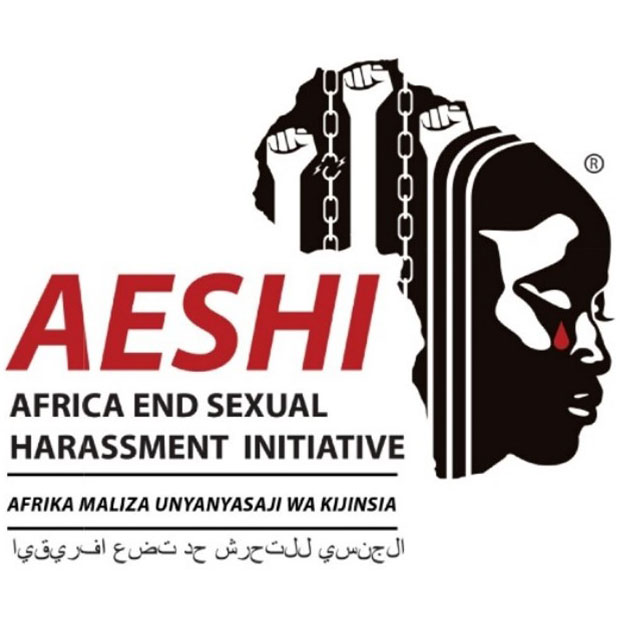
Furaha Joy Sekai Saungweme
Africa End Sexual Harassment Initiative (AESHI)
Furaha Joy Sekai Saungweme is a lawyer, researcher, legislative drafter and gender activist. She is the founder of Africa End Sexual Harassment Initiative (AESHI), a law reform and social movement project. She is a fellow of Women Leaders for the World, a project of How Women Lead based in USA, California which is a champion for promoting women in leadership. Furaha sits on the Editorial Board of the Berkeley University Centre on Comparative Equality and Antidiscrimination Law and is part of the Berkeley COVID-19 Equality Law Working Group. She has published book chapters and journal articles on democracy, gender and socio-economic rights in Africa, presenting her research as an invited speaker at academic institutions in Africa, Europe and the USA.
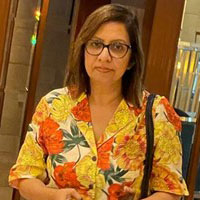
J. Anitha Menon
University of Zambia, Zambia
Dr. J. Anitha Menon is a Professor at the Department of Psychology at the University of Zambia. She is currently a Visiting Professor of Psychology in The International Studies Department at the American University of Sharjah. Prof. Menon holds a Ph.D. in Psychiatry/Health Psychology from the University of Nottingham, UK. Dr. Menon is passionate about improving young people's and vulnerable populations' well-being. For more than 25 years she has been actively involved in various research and service-related projects on gender-based violence, and sexual and reproductive health. She is the team leader for various international projects and has more than 100 publications in peer-reviewed journals. Dr. Menon has been featured in various international media and has received many awards. Some of the prominent ones are, the Labor Day Award from the Government of the Republic of Zambia for Innovation and Excellence, the UK Alumni Award for Professional Achievement, and the African Women Leaders Award in December 2019. Recently, the International Council of Psychologists announced Dr. Menon as the 2022 recipient of the Denmark Gunvald award for Feminist Research and Service.
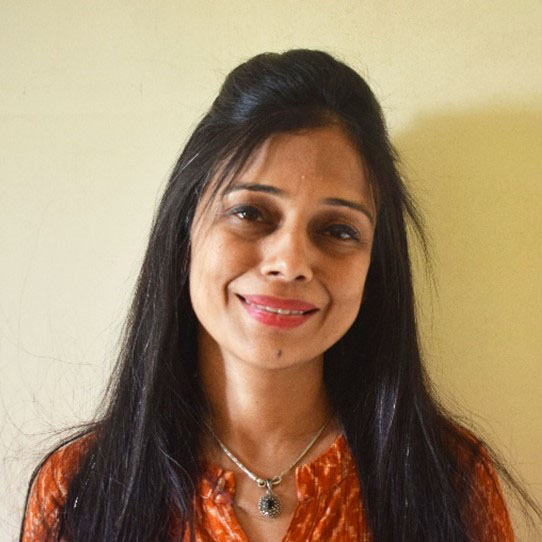
Leena Pujari
Kishinchand Chellaram (KC) College, India
Dr Leena Pujari is a feminist sociologist and researcher who believes in teaching for social transformation and in nurturing critical and analytical minds. Currently she is Associate Professor and Head, Department of Sociology, K C College. Her research interests include Gender Studies in particular issues of feminist pedagogy, feminist resistance and feminist jurisprudence. She has chapters in edited volumes and articles in national and international journals including Sage and EPW. She has been invited for Consultations by UNICEF and has delivered invited lectures at Universities and colleges across India and has been a resource person at Certificate courses, Orientation, Refresher and short term courses conducted by University of Mumbai, Columbia Global Centre, Mumbai, SOAS University, London, IMPRI, New Delhi, Population First, UNICEF. As member of the Board of Studies in Sociology of University of Mumbai during 2012-2022, she has contributed extensively to curriculum design and development especially in the field of Feminist Sociology. She has also designed and developed two Certificate Courses that are offered by the Dept. of Sociology. One is a course in Gender Studies and the other on Law, Justice and Rights. Both the courses adopt an intersectional lens to take a critical look at complex social realities.
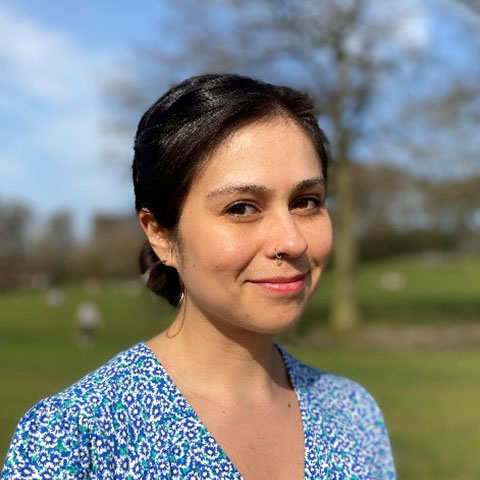
Melany Cruz
University of Leicester, UK
Dr Melany Cruz is a Lecturer in International Politics (Global South) at the University of Leicester. Her research interests include meanings of political violence in Latin America particularly looking at violence and nonviolence in resistance movements and civil disobedience. Her current research project 'Nonviolent resistance in the Chilean Feminist movement' explores the resurgence of the feminist movement in Chile observing two aspects: (i) the formation of feminist consciousness as a political project in a context of neoliberal crisis and (ii) understandings of the meanings of violence and civil disobedience within the movement i.e., political-sexual violence, feminicide, and the idea of precariousness of life. She is also broadly interested in the history of feminist political ideas in Latin America, political theory and theory of emotions.

Oluwaseun Ayodeji Osowobi
Stand to End Rape Initiative (STER), Nigeria
Oluwaseun Ayodeji Osowobi is a multi-award winning global gender equality advocate with experience in deploying solutions to challenge social barriers that promote violence against women and girls and utilises social and behaviour change communication to improve Sexual and Gender-based Violence knowledge and change attitudes and practices in order to achieve Gender Equality. She collaborates with state and non-state actors to implement policy and programmatic strategies to foster women's rights and safety. In 2019, she partnered with the BBC Africa Eye team on the #SexforGrades documentary to uncover the practise and scale of sextortion in Nigeria’s institution of higher learning, which led to the sack of some abusive lecturers, institutional changes and national policy action. As a young feminist and Founding Member of the Feminist Coalition, Oluwaseun is leveraging her voice to deconstruct sociopolitical structures that limit women’s rights, championing policy initiatives and empowering women and girls to fight inequalities in their daily lives. She is recognised as a 2020 Global Citizen Nigeria Hero, UN Young Leader for the Sustainable Development Goals, TIME 100 NEXT and serves as the Executive Director of Stand to End Rape Initiative (STER), a youth-led social enterprise advancing gender equality and fighting to end sexual and gender-based violence in Nigeria.
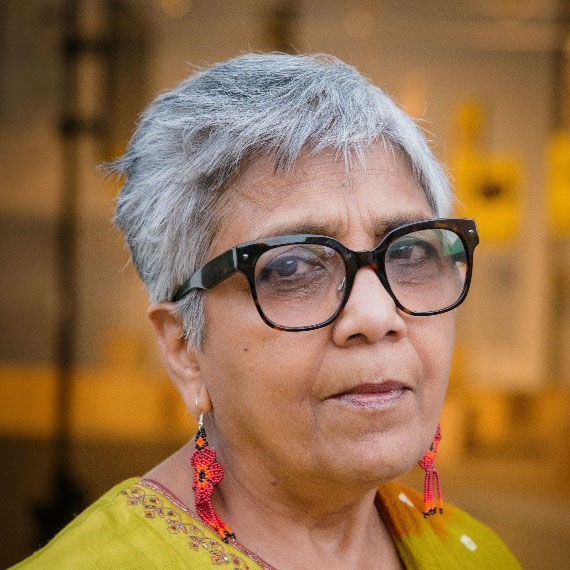
Radha D'Souza
University of Westminster, UK
Radha D'Souza is a critical scholar, social justice campaigner, barrister, and writer from India. Radha teaches law at the School of Law in University of Westminster where she chairs the Law, Development and Conflict (LDC) Research Group. Her research addresses problems of colonialism and neo-colonialism, resources conflicts (especially land and water), and comparative theory and philosophy. Her publications transcend disciplines and genres. Together with visual artist Jonas Staal, she is the co-producer of Court for Intergenerational Climate Crimes (the CICC), a performative art exhibition based on her book What’s Wrong With Rights? Social Movements, Law and Liberal Imaginations (Pluto, 2018). Different iterations of the CICC were hosted in Amsterdam, Munster, Helsinki, Seoul and Gwanju (April 2023). Besides publishing extensively in a number of disciplines, and for non-academic platforms hosted by social movements, Radha has been part of theatre productions, published short stories and poems and translated Dalit poetry.

Sabah Boufkhed
University of Manchester, UK
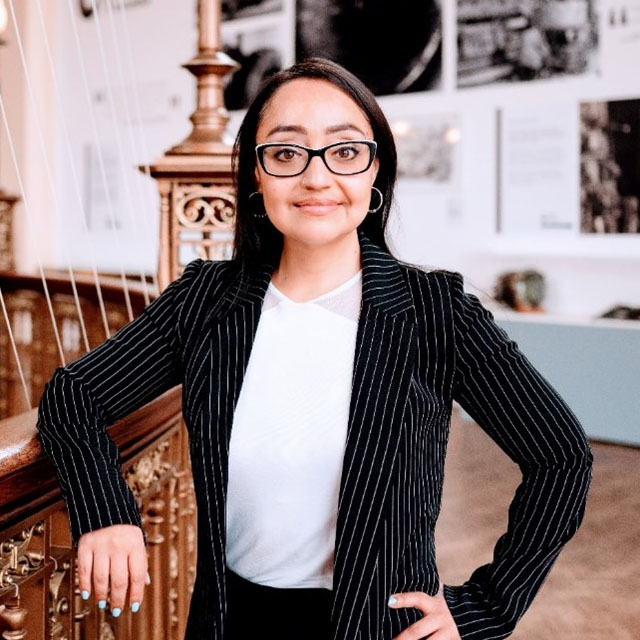
Silvana Tapia Tapia
University of Birmingham, UK / Universidad del Azuay, Ecuador / Alianza Contra las Prisones, Ecuador
Silvana Tapia Tapia is Leverhulme Fellow at Birmingham Law School and Assistant Professor of Law at Universidad del Azuay. She is an interdisciplinary socio-legal scholar and activist working at the intersections of violence against women, international human rights, and criminal justice, with a feminist, decolonial and anti-carceral perspective.
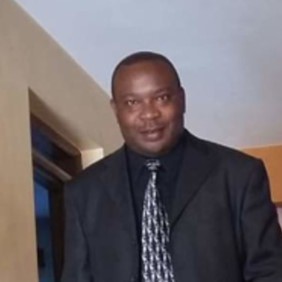
Willice Abuya
Moi University, Kenya
Willice O. Abuya is a Senior Lecturer in the Department of Sociology, Moi University, Kenya. He obtained his PhD (in Sociology) from the University of Fort Hare, South Africa. His area of specialisation is in Gender (including GBV/IPV), Demography (including reproductive health and child survival) &Environmental Sociology. He has several publications to his name, with the most recent being “Gender Mainstreaming for Sustainable Mining in Sub-Saharan Africa: opportunities and challenges, 2022. In Yakovleva, N. and Nickless, E. (eds.) The Extractive Industries and Sustainable Development. Routledge, London”. He has been involved in several research projects, the most recent being with the University of California, LA (‘End Violence on Campus’- a GBV/IPV project), with the University of Leeds (on youth reproductive and sexual health), with the University of Rome at Sapienza, Italy (on biomass energy and sustainability), and with the University of Geneva (on violence against environmental defenders).

Survivors' Network, UK

Christabel Yeboah
Hersana, UK

Gida Chadha
University of Mumbai, India

Louisa Acciari
University College London, UK
Louisa Acciari is a Senior Research Fellow at UCL and the Co-Director of the Centre for Gender and Disaster. Her research looks at gender in the world of labour through an intersectional and decolonial lens, and in particular, how marginalised and informal women workers organise to defend their rights. Before joining UCL in 2020, Louisa worked as a post-doctoral researcher at the Federal University of Rio de Janeiro for 2 years, and has extensive experience in conducting research, consultancy and training on gender and labour rights with the ILO, the International Domestic Workers’ Federation, Solidarity Centre and the OECD, among others. She has a Master in Comparative Politics - Latin America (Sciences Po Paris) and a PhD in Gender Studies (LSE).

Madeleine J. Foote
University of Oxford, UK

Natasha Narwal
Jawaharlal Nehru University, India
Lived Experience Advisory Group (LEAG)
The Lived Experience Advisory Group (LEAG) is a group of women of different ages and backgrounds who have personal experience of sexual and gender-based violence, including in HE. The group provides valuable feedback, reflections, and suggestions about how we are conducting the study and the methods we use.
We formed the LEAG because we recognise that people with lived experience are experts on their own experiences and that it is crucial to involve them in how we shape the research to ensure it effectively addresses the interests and needs of victim-survivors. We strongly believe that research is most effective when it includes the people directly affected by it. The group is managed and supported by Jessica, who meets with them at regular intervals during the life of the project.
Visit our ethics page to find more information about the ethics and data confidentiality principles guiding this project.

